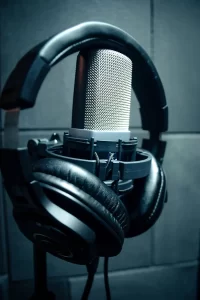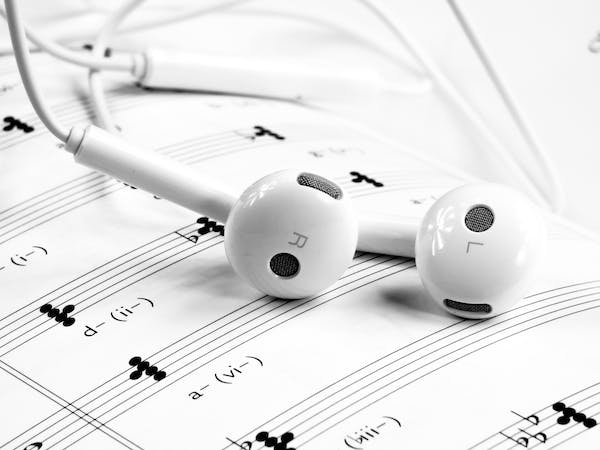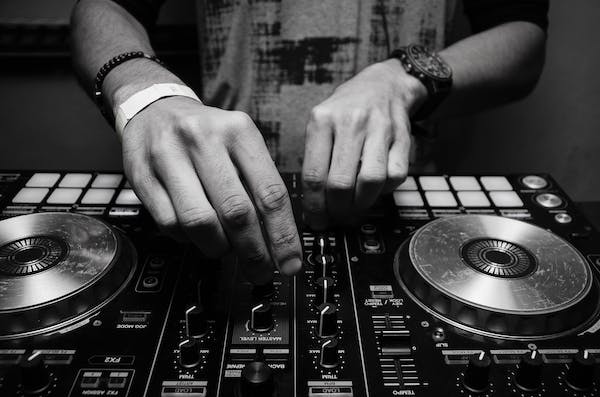 In a world filled with stressors and uncertainties, music emerges as a universal language that transcends cultural barriers, bringing solace and comfort to individuals in need. Its therapeutic power has been recognized since ancient times, with historical accounts documenting the use of music for healing purposes in various cultures. Today, modern research continues to unveil the profound effects of music on mental and emotional well-being, shedding light on its therapeutic potential in the treatment of various psychological disorders and conditions.
In a world filled with stressors and uncertainties, music emerges as a universal language that transcends cultural barriers, bringing solace and comfort to individuals in need. Its therapeutic power has been recognized since ancient times, with historical accounts documenting the use of music for healing purposes in various cultures. Today, modern research continues to unveil the profound effects of music on mental and emotional well-being, shedding light on its therapeutic potential in the treatment of various psychological disorders and conditions.
Music has the remarkable ability to evoke emotions and memories, offering an outlet for expression and introspection. Whether it’s the soothing melody of a classical composition or the rhythmic beat of a favorite song, music has a way of resonating with our innermost feelings, providing a sense of connection and understanding. This emotional resonance forms the foundation of music therapy, a clinical intervention that utilizes music to address a wide range of psychological and emotional issues.
One of the most notable benefits of music therapy is its ability to reduce stress and anxiety levels. Research has shown that listening to music can lower cortisol levels, the hormone associated with stress, while simultaneously increasing the production of endorphins, the body’s natural mood elevators. By creating a calming and harmonious environment, music helps individuals relax and unwind, promoting a sense of inner peace and tranquility.
Moreover, music has been found to enhance cognitive function and improve mental clarity. Studies have demonstrated that engaging with music can stimulate various areas of the brain involved in memory, attention, and executive function. For individuals struggling with cognitive impairments or neurodegenerative diseases such as Alzheimer’s, music therapy offers a non-pharmacological approach to improving cognitive abilities and enhancing overall quality of life.
In addition to its cognitive benefits, music therapy has shown promise in the treatment of mood disorders such as depression and bipolar disorder. Music has the unique ability to evoke specific emotions and moods, making it a powerful tool for emotional regulation and self-expression. Through guided music listening sessions and improvisational exercises, individuals can explore and process their emotions in a safe and supportive environment, leading to greater emotional resilience and well-being.
Furthermore, music therapy has proven effective in relieving pain and discomfort, particularly in clinical settings such as hospitals and rehabilitation centers. By diverting attention away from physical sensations and providing a source of comfort and distraction, music can help alleviate pain and promote relaxation. This integrative approach to pain management complements traditional medical interventions, offering patients a holistic and multidimensional approach to healing.
In conclusion, the therapeutic power of music transcends its role as mere entertainment, offering profound healing benefits for the mind, body, and soul. Whether used as a form of self-care, relaxation, or clinical intervention, music has the potential to uplift spirits, soothe troubled minds, and foster a sense of connection and belonging. As we continue to unlock the mysteries of the human brain and explore new avenues of healing, music stands as a timeless and universal remedy for the human condition.
 In the symphony of life, where stress often takes center stage, music emerges as a powerful conductor of peace, offering solace to the soul and a balm for the mind. The connection between music and mental wellness has been acknowledged for centuries, and contemporary research continues to unveil the profound impact that melodic strains can have on alleviating stress and promoting mental well-being.
In the symphony of life, where stress often takes center stage, music emerges as a powerful conductor of peace, offering solace to the soul and a balm for the mind. The connection between music and mental wellness has been acknowledged for centuries, and contemporary research continues to unveil the profound impact that melodic strains can have on alleviating stress and promoting mental well-being. In the intricate tapestry of human emotions, music stands as a universal language that transcends boundaries and communicates directly with our souls. Beyond its aesthetic appeal, music possesses a profound ability to influence our mental and emotional well-being. This article delves into the realm of sound and melody to explore the calming impact of music on mental health, unveiling the therapeutic potential that resonates through the notes and rhythms.
In the intricate tapestry of human emotions, music stands as a universal language that transcends boundaries and communicates directly with our souls. Beyond its aesthetic appeal, music possesses a profound ability to influence our mental and emotional well-being. This article delves into the realm of sound and melody to explore the calming impact of music on mental health, unveiling the therapeutic potential that resonates through the notes and rhythms.




